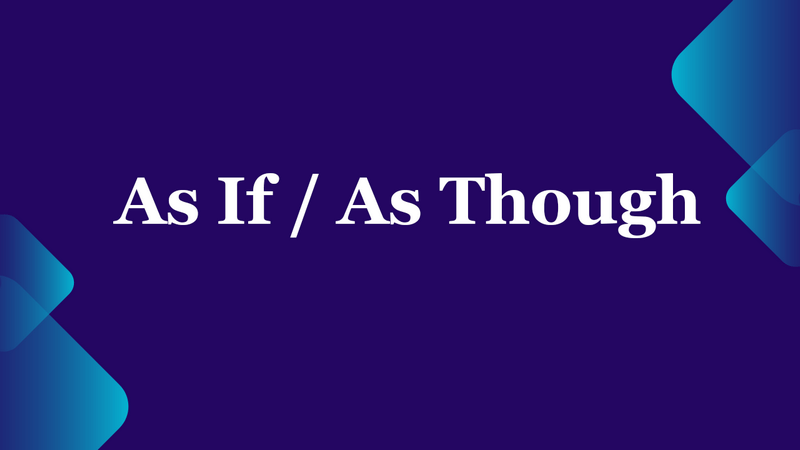Have you ever wondered if there’s a difference between as if vs. as though?
The good news is that there isn’t!
You can use these two conjunctions interchangeably because they have the same meaning.
However, as if is more common and sounds more natural.
In this post, we’ll explore how to use as if / as though in different contexts.
Unreal Comparison with As If / As Though
When you want to make an unreal comparison, that is, a hypothetical or impossible situation, you use as if or as though with the subjunctive verb tense.
For example, “He acted as if he were the CEO”.
Here, “were” is in the subjunctive verb tense, indicating that it’s an impossible situation.
In contrast, “He was the CEO” would be in the past simple tense, indicating that it’s a real situation that has already happened.
Likely or Possible Comparison with As If / As Though
If you want to suggest that something seems likely or possible but you’re not entirely sure, you can use as if / as though with any verb tense depending on the context.
For instance, “You look as if you haven’t slept in days” is in the present perfect tense because it started in the past and continues until now.
In this case, there’s some doubt to the statement because you’re not entirely sure if it’s true or not.
Native speakers often use “like” in this context, as in “You look like you haven’t slept in days”.
More examples of how to use as if / as though in a sentence:
- She looked at me as if I were crazy.
- He talks as though he knows everything.
- He spoke to me as if I was a child.
- It feels as if I’ve been waiting forever.
- She smiled as though she knew a secret.
- He worked tirelessly as though his life depended on it.
- The sun set behind the mountains as if it were on fire.
- He ran away as if he had just seen a ghost.
See also: Like vs. Such as

